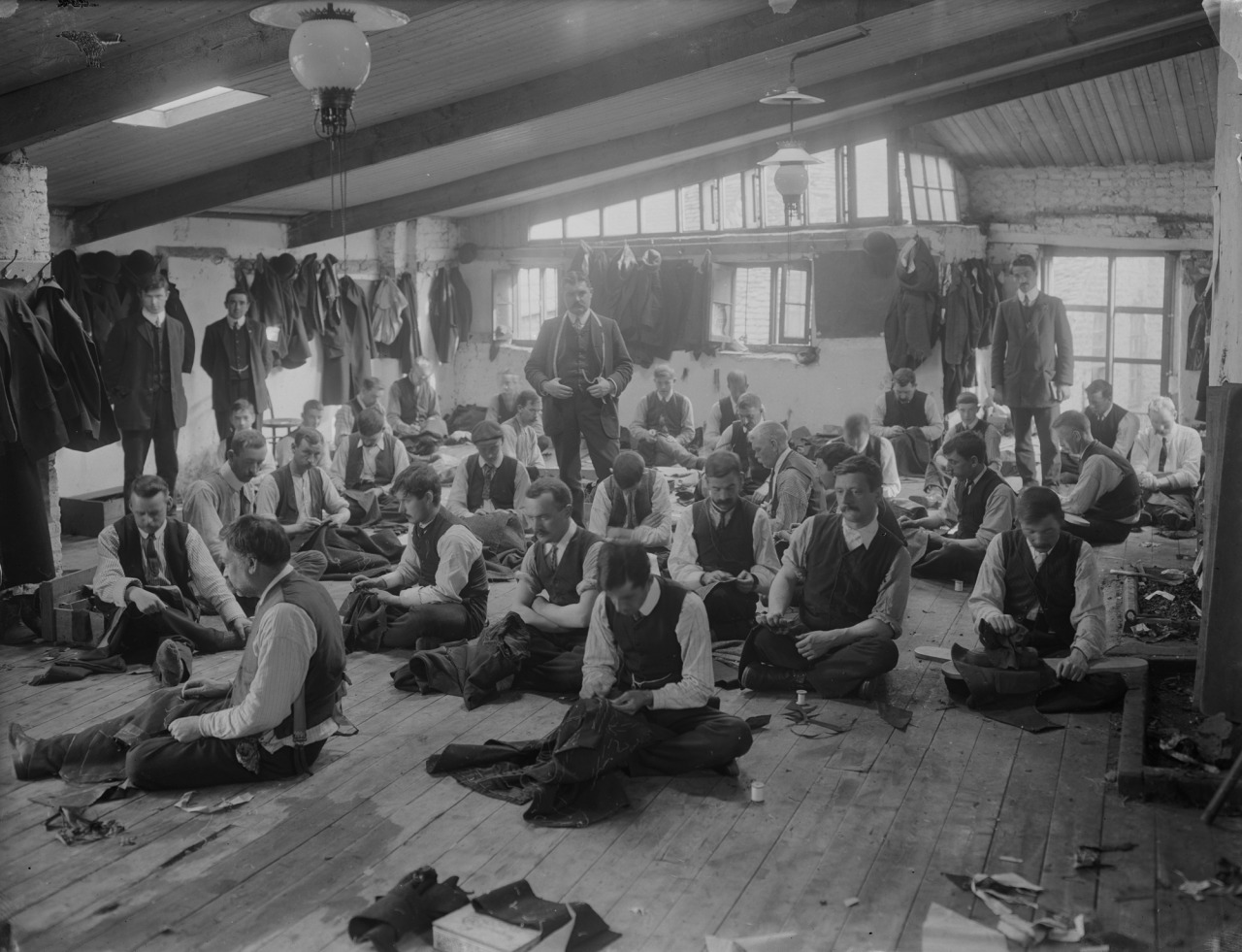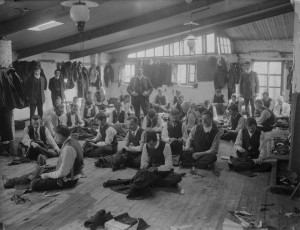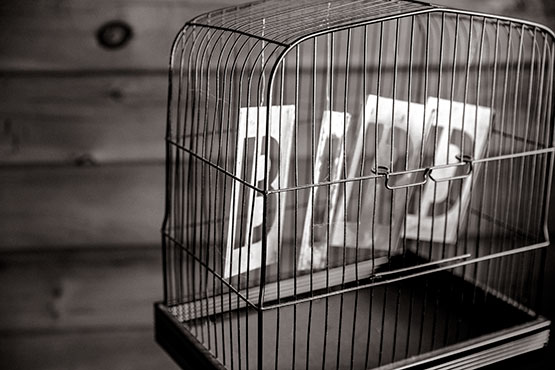Identity and Career
Rare is the man or woman who can walk with graceful indifference to their career. I once had a music teacher advise me to learn all the theory I could, and then forget it.
Be the best you can be in your craft and then let it go. Really.
Identity and career are two parts of life that should never meet. If they do, it can be lethal, and very difficult to separate. A career can take over and leave true identity on life support. I speak from experience. It takes a long time to regain, or replace, what you lose.
I’ve found these dangers in the mixing of identity and career:
- Quiet resignation. This occurs when we get older or have been at something for a while. The lie we tell ourselves is “we’re in too deep, and it could be worse.”
- The high. It feels good in the moment, so we desire the thrill. We enjoy being seduced by flattery and accomplishment. Nothing quite like being the one to watch.
- The ghost of our father. This one is so subtle. We watched a man, or a woman, toss away life for not much in the end. That script then becomes our own.
- The payback. Somewhere we got wounded and the chip appeared. This is the closet sociopath coming out to wreck the place.
- The false obligation. We pull out all the noble reasons for staying. “I have a mortgage, I have my kid’s college education.” It’s as if we think we’ll be excused for our fear in the end.
The choice is mine, the choice is yours. We have to remember that career is a great dance when the identity is kept separate. The challenge is found in living in a culture that values the opposite.
Success in Life
Some thoughts on success in life.
Work-Life Balance
What Martin Taught Me
httpv://youtu.be/fAtsAwGreyE
Seemed right to re-post this today, for the obvious and the not-so obvious truth that we need courage even more today.
It seems annually, I watch this You Tube clip from 1965 of Dr. Martin Luther King, Jr. It was taken from a segment of Meet the Press. Dr. King was being interviewed by journalists about events that had occurred in Selma, Alabama. The questions were tough and circumstances of the time even tougher.
So what did Martin teach me?
I don’t know what was going through Dr. King’s mind as he spoke on that Sunday morning news program, but it seemed like he was being carried by something greater than himself. Remember, there were more than a few people who wanted him dead.
Courage is manifested by something greater than ourselves.
Sadly, we live in a time where real courage is often refused. We now manufacture events and circumstances to show our faux-courage. We’ve found a way to manage authentic courage out of our daily lives. Our careers, our parenting, our relationships are often managed to avoid the difficult and daunting.
I find myself thankful for what Martin taught me. The reality that every human being will one day face a crossroads of courageous. It may be small or it may be large. But regardless, no one gets a pass.
The question remains, are we listening to that voice?
The Fears
Many of us walk through life posing as brave. This form of brave is not found in daring acts, but in silence and distraction. Think of it as the guy or gal sitting next to you who always seems busy and doesn’t say much, even when they use many words.
America has made it easy to be controlled by our fears. We’re always in a hurry and very rarely go beyond the surface.
The fears are those foreboding events that are highly unlikely to come to pass, but in your head you’re convinced they will.
Maybe you’re fighting, or surrendering to the following:
- Insecurities have you convinced that you are not worth the success that is rightfully yours
- You’ve made career an idol and the prospect of failure cripples you from taking risk
- You’re addicted to something or someone. This is not love or true need. It’s a poor substitute causes fools you into believing a lie
- You believe every thought and emotion is worthy of your deep attention
- Like everyone else, you’ve been hurt, so you given up
I throw out the above to let you know that fears are rooted in untruth and in many ways you lose your freedom when you give into them. I also get why we have so many fears; there is a true absence of authentic love and we know it. As I am trekking through my journey, I am focused on God’s love and truth for me. This is essential because I can’t figure out this mad world and my fears are always knocking at the door.
I also fight, and I fight hard. That’s the only proven strategy, after getting the God-part in place.Life is not designed for the timid and the victim. If you haven’t noticed lately, life is tough.
Work and Employee Happiness
Most organizations, these days, are speaking the language of happiness. For some entities it’s just talk, for others a striving everyday.
Employee happiness and engagement are connected. Maybe it’s obvious for you. I come from a view that says your company is not responsible for your happiness. Only you can own that. Whether it’s changing roles, transferring geographically or firing your boss with your feet, it still comes back to you.
Why are so many employees unhappy?
My answers:
Employees make choices that lead to unhappiness. On the whole, we live unbalanced and incongruent lives. The unbalance is found in our willingness to pour mind, body and soul into one area of life, while ignoring another. See the work versus family civil war, many are fighting right now. As someone who used to value my work over my family, it is a civil war. The incongruent part is the BS we tell the world. For example, “family is number one for me.” Nobody is perfect, but if you know you haven’t lived this out in over two years, you’re living incongruently. These are the recipes for unhappiness.
Employers foster unhappiness by the conditions their employees work under. Here’s the deal, if you are a CEO and you expect an employee to get excited about the stock price or last quarter’s earnings, you need a straight-jacket. Happiness and engagement happen when there is a great mission to achieve, something beautiful to create or a dangerous problem to solve. Without those, most will leave, or worse, die and stay.
Employees have defined happiness incorrectly. For me, happiness is fluid. It’s not a genie to be captured in a bottle. If you would have looked at my life yesterday, I would have been 90% happy and 10% unhappy. Those numbers don’t make me special, I just chose to be happy 90% of the day. I chose to be unhappy too. I think many are too fixated on happiness. Like life, happiness is not an arrival point. If we look at happiness as fluid, we’ll be better able to handle the stuff of life. Maybe we’ll find that moments of unhappiness are not the end of the world.
Employers are living in the past. Organizing your company like the industrial revolution happened last year is a disaster. Most employees live life in and around the 21st century. It frustrates the hell out of them when they’re treated like an assembly line worker or treated as if they’re a 4th grader.
In the end, every employer has an agenda. It may be a fit for you, or not. Either way happiness is your animal to wrestle with.
The Shift From Arrogance to Humility
The shift from arrogance to humility should not be a take it or leave it process. Far too often, the two opposing mindsets have been relegated to personality test outcomes or to individual behaviors. We all know the two have far reaching impact on multiple areas of life. Like the following:
- Family
- Customers
- Co-workers
- Performance (business and personal
- Community
Most businesses (large and small) are afraid to tackle arrogance and humility. The pendulum either swings to enablement of the arrogant, or swings to not feeling comfortable with the “touchy, feely” of humility. When an organization refuses to deal, they run to distractions. Typically, meetings and over-thinking financial performance are du jour.
I am a man who has gone (still going) through the shift from arrogance to humility. I’ve grappled with regret, sadness, embarrassment, and more regarding this. It’s very hard work and the sooner you do it the better. I’ve even had the 3 AM visits, from above, reminding me of things I thought were buried and unknown to others. Maybe you have too.
I decided awhile ago to allow God to change me so that I can be like the sun, not gray and overcast. I couldn’t change myself. Arrogance, like humility, begins with a seed, moves to the roots, and then evidence in the form of a plant. Seeing a field of plants was too daunting and intimidating to change. Besides, even with the self-loathing, I also built a place of comfort, It was something I knew how to be. This quote from Jony Ive reveals how subtle this battle can be:
“I remember talking to Steve Jobs and asked why he was perceived as harsh. And I said couldn’t we be more moderate? And he said why? And I said, because I care about the team. And he said: “No Jony, you’re just really vain. You just want people to like you. I’m surprised at you, because I thought you really held the work up as the most important and not how you are perceived by people. People misunderstand Steve because he was so focused.”
Remember, there’s a lot on the line here. I’m choosing to shift. How about you?
Why Men Don’t Value Women
Considering where we’re at in America (the world too) today, I felt moved to put this post from 2010 out again. I’m still learning…
I’ve been thinking lately about what we value and what we don’t. This is important because our values do define our lives.
For example, if your career is what you value most, then everything (I mean everything) will be second to that. I’m not writing to judge, just stating a reality. It’s ironic how little values are considered in our current age.
The above brings me to why men (significant numbers) don’t value their women. I know this post might generate some scathing comments, but I speak as a recovering jerk in the area of valuing my wife and her motherhood.
I worked, as many readers/subscribers know, in corporate America for many years. The majority of that was at a senior level. And yes, I drank the kool-aid, participated in the rah, rah sessions and terminated the employment of people who were deemed disposable. I was paid well and thought (at times) my path was only going to get better.
During this time my wife gave up her career to raise our two children. This decision was mutually agreed upon. The idea of her being the primary care-giver seemed like the right thing to do. To this day, I would say our children are the better for this decision.
But along the way I began to see our roles as separate and equal. She took care of things at home and I took care of things career related. There were times when we’d share the burdens, but I thought little about her struggles and work load. After all, I saw it as her role/job. The “taking things for granted” process settled in.
Many times she would call me at the office to vent or seek affirmation. I gave her words, but not my heart. Life went on, money was made and security (perceived) became the normal. We lived this way for almost ten years, and then things changed. My wife went back to work and corporate America said goodbye to me. I became a man who did many different things (author, consultant and stay-at-home dad). All of sudden the world looked strange. For example, work on the book manuscript and make sure my son got to preschool. Ironically, after about six months, I found myself longing for affirmation and encouragement from my wife for all of my hard work at home. I felt like a man exposed by his ghosts.
I don’t claim that my experiences are unique or more important than other men. But here are the reasons why many men don’t value their wives or motherhood:
- As men we are taught early on that money makes the world go round and you’d better work hard to get it. Therefore, making money becomes part of our root system. Like a tenacious weed.
- We assign roles without understanding or caring. I made so many assumptions without taking the time to understand my wife’s greatest needs.
- We’re too busy (cop-out) to give the attention where it’s needed. We decide that our wives are fine in our mind, and then we just move on.
- We don’t evaluate the magnitude of motherhood. We don’t consider what our wives went through to carry and birth a child, let alone be the primary caregiver.
- Being a wife and mother doesn’t, in form, produce money. Assigning value becomes tough and we just take it for granted. If wives and mothers started being paid for what they deal with, we’d probably stand-up and take notice. But it would be too late to applaud then.
The Eric that walked the halls of corporate America is dead. The post-corporate America Eric is learning how to live and has been given a chance to be remade. It’s very difficult to live differently. But I have found a life worth living-Epic if I may so.
Dehumanizing the Employee
In my last post, I rang the bell about the gap between human development and the advancements of technology. The disharmony is evident to many. Within the large and mid-market organizations, there is another disturbing trend afoot. We are witnessing the dehumanization of the employee.
Dehumanizing the employee occurs as many employers are looking to advance efficiency and innovation. It’s a false belief that those twins can move human development the way technology does with automation or research.
One area worth looking at is the process many organizations use to hire talent. Keep in mind that the talent is made up of flesh and blood. I realize this can also be a source of real frustration for those in talent recruitment. Technology has convinced many senior leaders that vast problems are solved in the hands of inventive software.
The idea of using screening software has a place. However, it’s proven, the folly of hiring based on keywords. The old saying, “we hired your resume, but what we got was you” is on mark here. More critical thinking in this spot is what we need. Seems like that would remedy the incongruent state of the talent recruitment processes.
So the dehumanizing continues. What do we do now that the horses are out of the gate?
- Put on your big boy pants or big girl skirt, and be a leader with integrity and vigor
- Change the culture. This is not for the faint of heart, but if you do the first bullet it will increase the odds in your favor
- Stop listening to the marketing
- Trust only those who’ve been hurt deeply. They will be honest and real
- Close it down, quit, move on, if that’s what it takes. Better to live to fight another, than die while still breathing












